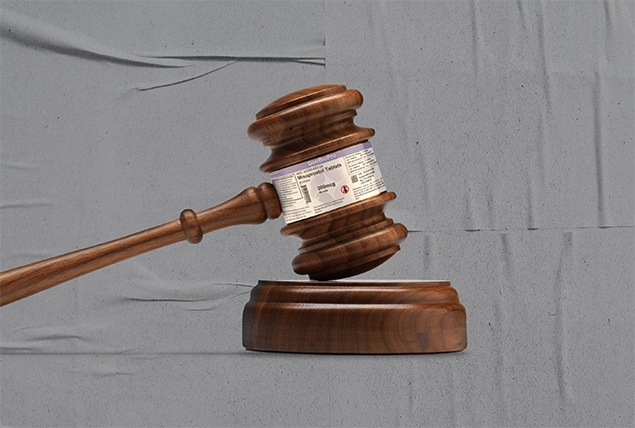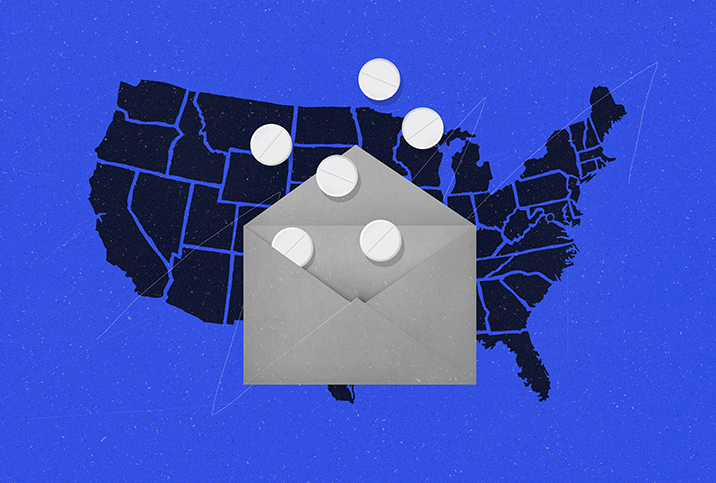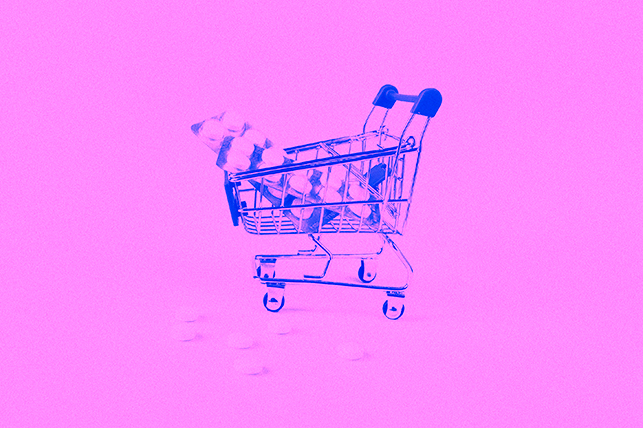Louisiana Law Classifies Abortion Pills As Controlled and Dangerous

Key Points
- Mifepristone and misoprostol are commonly used in medication abortions, which comprise more than half of all abortions in the United States.
- The Louisiana legislature passed a first-of-its-kind law reclassifying the drugs as controlled and dangerous substances.
- The law makes it a crime to possess abortion-inducing drugs without a valid prescription.
Following the Supreme Court's decision in June 2022 to overturn Roe v. Wade, abortion clinics in Louisiana shuttered after the state instated a near-total ban on the procedure. Louisiana lawmakers have now reclassified two abortion-inducing drugs as Schedule IV-controlled substances, further restricting access to reproductive care.
The first-of-its-kind bill, signed by Republican Governor Jeff Landry, places mifepristone and misoprostol in the same category as potentially dangerous drugs such as narcotics and depressants.
Is Plan B legal in Louisiana?
Also known as the morning-after pill, Plan B is a form of emergency contraception and not an abortifacient, or a substance causing abortion. Using these pills won't terminate a pregnancy or harm a fetus.
Louisiana law explicitly states that contraceptives, including Plan B, are still legal.
What did the Louisiana legislature decide regarding abortion-inducing drugs?
The new bill designates mifepristone and misoprostol as controlled and dangerous substances meriting further oversight due to their potential for abuse and dependence.
Although pregnant people are exempt from prosecution, anyone else who possesses the drugs without a valid prescription could face fines of up to $5,000 and one to five years in prison.
Additionally, the law requires doctors to have a specific license to prescribe the medications and store them in separate facilities, which the bill's opponents say could hinder rural providers' access.
Because prescriptions will be entered into a database law enforcement can view without a warrant, critics of the bill also say physicians and patients may be hesitant to give or ask for them.
The reclassification is an amendment to a larger bill making it illegal to knowingly give abortion pills to a pregnant person to cause or attempt to cause an abortion without the pregnant person's consent.
People found guilty of such "coerced criminal abortion by means of fraud" face up to 10 years in prison or up to 20 years if the pregnant person is past their first trimester.
"Requiring an abortion-inducing drug to be obtained with a prescription and criminalizing the use of an abortion drug on an unsuspecting mother is nothing short of common sense," Landry posted on the social media website, X. "This bill protects women across Louisiana."
The state's Republican-majority Senate passed the bill in a 29-7 vote on Thursday, May 23.
Recommended
- The Facts About Abortion: Women considering abortion should understand the principal facts about the procedure.
- You Have Options if You Decide to Have an Abortion: There are many choices and factors to consider after you decide to terminate a pregnancy.
- How I Terminated My Pregnancy: In a place where abortion is illegal, I am grateful I was able to choose to end my pregnancy.
Why has the Louisiana legislature classified abortion pills as a controlled substance?
Supporters of the reclassification say it will help protect pregnant people from coerced abortions, citing only a single example of such a crime occurring.
State Senator Thomas Pressly (R), the bill's sponsor, said he proposed the bill because his sister's husband, Mason Herring, had secretly put abortion-inducing drugs in his wife's drinks while she was pregnant.
At the time, the now-estranged couple was separated but had agreed to go to marriage counseling. Herring pleaded guilty to charges of assault of a pregnant person and injury to a child and was sentenced to 180 days in jail.
Senator Pressly said in a statement in April that he wanted to stop the "rampant illegal distribution" of abortion pills that had harmed his sister.
"Federal law is clear that when a drug is frequently abused and is a risk to the health of citizens, it is appropriate to include it as a controlled substance. My sister's story is clear proof that these drugs are being weaponized and are a risk to public health," he wrote. "By placing these drugs on the controlled substance list, we will assist law enforcement in protecting vulnerable women and unborn babies."
Healthcare providers have used mifepristone and misoprostol in miscarriage and medical abortion care for over 20 years.
More than half of abortions in the U.S. involve these medications, according to the Guttmacher Institute, a sexual and reproductive health research group.
Mifepristone stops the production of hormones necessary to sustain a pregnancy, and misoprostol causes the uterus to contract. However, the drugs are also used in other contexts and can aid in labor and delivery or the treatment of gastrointestinal ulcers. At slightly higher doses than those approved for miscarriage or abortion, mifepristone can also help treat Cushing's syndrome.
The federal government doesn't classify these medicines as dangerous controlled substances, and are approved in nearly 100 countries, shared a 2023 report. An abundance of research indicates they're safe and effective, with no risk for dependence or abuse and little chance of adverse side effects.
Critics of the "Pill Bill," as it has become known, have said reclassifying the medications could stoke fear and confusion among providers and patients and limit patients' access to necessary care.
More than 200 Louisiana healthcare providers and medical students signed a letter to the lawmakers expressing these concerns, according to the Associated Press.
"This goes too far. We have not properly vetted this with the health care community, and I believe it's going to lead to further harm down the road," noted Senator Royce Duplessis (D). "There's a reason we rank at the bottom in terms of maternal health outcomes, and this is why."
One of the more pervasive abortion myths is that it is harmful to people's health. However, research overwhelmingly suggests medical abortion carries a low risk of adverse side effects, particularly when compared to pregnancy and childbirth.
Louisiana has one of the highest maternal mortality and morbidity rates in the country, according to the state's health department.
Louisiana abortion laws: How many weeks?
Abortion centers in Louisiana were already scarce before the Supreme Court overturned Roe v. Wade, but since the law changed most providers have now left the state, shared a 2022 report.
Abortion is illegal in Louisiana with narrow exceptions to save a pregnant person's life, prevent "serious risk" to their health, or when a pregnancy is nonviable. Earlier in May, lawmakers rejected a bill that would have added exceptions for rape and incest.
Many Louisiana residents have crossed state lines to get abortions in places where it's legal or receive mifepristone and misoprostol under shield laws from providers in other states who prescribe and mail them.
Experts say the new bill isn't likely to affect these circumstances, according to The New York Times. However, it does make it riskier to order abortion pills online without a prescription.
What other medications are considered 'dangerous controlled substances?'
The U.S. Drug Enforcement Administration (DEA) defines schedule IV drugs, substances and chemicals as those with some potential for abuse and risk of dependence.
Drugs classified as controlled and dangerous substances include narcotics; depressants, such as Soma, Xanax and Valium; sleep aids, such as Tramadol and Ambien; and stimulants that can be used to treat obesity or attention-deficit/hyperactivity disorder (ADHD).
What's the next step in the Louisiana anti-abortion Pill Bill?
Abortion rights activists fear Louisiana's actions could inspire similar policies in other states with abortion bans, and President Biden called it a "direct result" of Donald Trump's influence on the Supreme Court Dobbs decision.
"This is a scary time for women across America. If Donald Trump regains power, he will try to make what is happening in states like Louisiana a reality nationwide," President Biden said in a statement, according to NBC News.
Some reproductive rights organizations have said they're exploring legal challenges to the Pill Bill. The Louisiana legislation comes as the Supreme Court considers a major case concerning the FDA's approval of mifepristone. The justices are expected to issue a decision by July.
The bottom line
Louisiana residents who decide to have an abortion have limited options, but help is available.
Organizations such as the National Abortion Federation offer assistance to pregnant people in need throughout the U.S., including information and financial resources.
For those looking to prevent pregnancy, contraceptives, including Plan B, are still legal and available in Louisiana and nationwide.


















